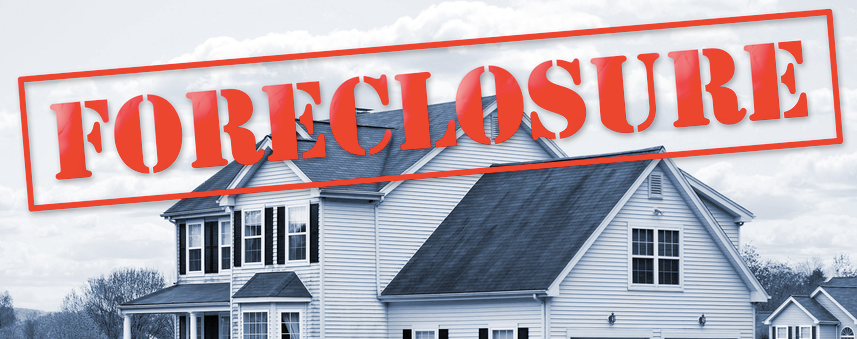
Facing the consequences of foreclosure can be a daunting experience, especially in Connecticut, where the legal process is both strict and complex. This comprehensive guide outlines the key financial, legal, and emotional consequences of foreclosure in Connecticut, providing expert insights into alternative solutions, recovery strategies, and essential homeowner rights.
What is Foreclosure? A Primer for Connecticut Homeowners
Foreclosure is the legal mechanism that allows a lender to recover the balance of a loan from a borrower who has defaulted on their mortgage payments. In Connecticut, the process is uniquely defined by strict foreclosure laws that can severely impact homeowners if they are unprepared. Understanding the intricacies of the foreclosure process in Connecticut is the first step in mitigating its potentially consequences of foreclosure.
Types of Foreclosure in Connecticut
Connecticut is one of the few states that practices:
- Strict Foreclosure: The court transfers ownership of the property directly to the lender without a public auction if the homeowner fails to make payments.
- Foreclosure by Sale: The property is sold at a public auction, often ordered by the court, to repay the outstanding debt.
Both types come with specific implications for homeowners, including the timeline of eviction and potential financial repercussions.
Financial Consequences of Foreclosure
1. Deficiency Judgments: The Debt Doesn’t End With Foreclosure
Foreclosure doesn’t always absolve homeowners of their financial obligations:
- If the property sells for less than the amount owed on the mortgage, the lender may pursue a deficiency judgment. This legal action enables the lender to seek the remaining balance from the homeowner.
- In Connecticut, pursuing a deficiency judgment is a significant risk for homeowners, potentially leading to wage garnishment or liens on other properties.
2. Impact on Credit Score and Future Borrowing
The effects of foreclosure on a homeowner’s credit score can be long-lasting:
- A foreclosure can reduce a credit score by 100 to 160 points, affecting a homeowner’s ability to secure loans, credit cards, or favorable interest rates in the future.
- This negative impact remains on credit reports for up to seven years, creating substantial barriers to rebuilding financial stability.
3. Tax Implications of Foreclosure
Homeowners may face unexpected tax consequences:
- The forgiven debt from a foreclosure could be considered taxable income. Understanding how the Mortgage Forgiveness Debt Relief Act applies is essential to avoid surprises during tax season.
- Consult with a tax advisor to explore potential exclusions that might apply, especially if the property was the primary residence.
4. Loss of Home Equity and Investment
One of the most significant consequences of foreclosure is the loss of home equity:
- Years of investment in the property can be wiped out, leaving homeowners without their primary asset.
- The financial impact is particularly severe for those who have made substantial improvements to the home.
Legal and Emotional Consequences of Foreclosure
5. Eviction Process: What Happens After Foreclosure?
The eviction process in Connecticut begins after the completion of foreclosure proceedings:
- Homeowners receive a court order to vacate the property, often with little notice.
- Understanding the legal timeline for eviction can help homeowners prepare and explore temporary housing solutions.
6. Public Records and Social Stigma
Foreclosure is a matter of public record, and this transparency can affect other aspects of life:
- It can influence job prospects, rental applications, and even personal relationships.
- The social stigma associated with foreclosure can lead to feelings of shame and isolation.
7. Emotional and Psychological Effects
The stress of foreclosure is not only financial but also emotional:
- Many homeowners experience anxiety, depression, and familial tension during the foreclosure process.
- Seeking support from mental health professionals or community groups is essential to manage the emotional toll.
Alternatives to Foreclosure: What Are Your Options?
Foreclosure is not inevitable. Homeowners facing financial difficulties can explore various alternatives that may help them keep their homes or reduce the impact of foreclosure.
8. Loan Modification
A loan modification involves renegotiating the terms of the mortgage:
- This could include adjusting the interest rate, extending the term, or altering monthly payments to make them more manageable.
- Homeowners should reach out to their lenders early to discuss this option.
9. Short Sale
If selling the property for less than the mortgage balance is an option, a short sale can prevent foreclosure:
- This process requires lender approval but can mitigate the impact on the homeowner’s credit score.
- It’s important to understand the pros and cons, as short sales still appear on credit reports, though they are generally less damaging than foreclosures.
10. Deed in Lieu of Foreclosure
Homeowners may consider a deed in lieu of foreclosure:
- This arrangement involves voluntarily transferring property ownership to the lender to satisfy the debt.
- It avoids the lengthy foreclosure process but can still impact credit and financial standing.
11. Connecticut Foreclosure Mediation Program
Connecticut offers a state-specific solution to help homeowners avoid foreclosure:
- The Connecticut Foreclosure Mediation Program facilitates negotiations between homeowners and lenders to find mutually beneficial solutions.
- This program can be particularly effective in reducing the financial and emotional strain associated with foreclosure.
Rebuilding After Foreclosure: Steps to Recovery
Foreclosure is a significant setback, but recovery is possible with careful planning and informed decision-making.
12. Rebuilding Credit After Foreclosure
Credit recovery is a gradual process that requires patience and consistency:
- Pay all remaining debts on time to establish a positive payment history.
- Consider opening a secured credit card to start rebuilding creditworthiness.
13. Future Homeownership: When Can You Buy Again?
Foreclosure doesn’t permanently disqualify you from owning a home:
- Many loan programs, including FHA loans, allow individuals to apply for a mortgage three years after foreclosure.
- Work on improving your credit score and reducing debt to increase the likelihood of approval.
14. Financial Counseling and Planning
Seeking guidance from financial advisors or nonprofit organizations can be invaluable:
- The Connecticut Fair Housing Center offers resources for foreclosure prevention and financial planning.
- Developing a long-term financial strategy is crucial for preventing future financial crises.
Frequently Asked Questions (FAQs)
What is the typical duration of the foreclosure process in Connecticut?
Foreclosure in Connecticut can last from six months to over a year, depending on the complexity of the case and the homeowner’s actions during the process.
Can lenders pursue additional debt after foreclosure?
Yes, through deficiency judgments, lenders can seek to recover any remaining debt that wasn’t covered by the sale of the property.
How does foreclosure affect my credit score?
Foreclosure has a severe negative impact on credit scores, potentially dropping them by 100 to 160 points. The foreclosure record remains on your credit report for seven years.
What alternatives are available to avoid foreclosure in Connecticut?
Options include loan modification, short sale, deed in lieu of foreclosure, and participating in the Connecticut Foreclosure Mediation Program.
How can I rebuild my credit after a foreclosure?
Rebuilding credit involves consistent debt repayment, maintaining low credit balances, and possibly using secured credit cards to improve your credit score over time.
Take Control of Your Financial Future: Don’t Let Foreclosure Define You
While foreclosure is undoubtedly a challenging experience, it doesn’t have to be the end of your financial journey. By understanding the consequences of foreclosure in Connecticut and exploring all available options, homeowners can make informed decisions that minimize damage and set the stage for recovery.
Facing Foreclosure? Let’s Explore Your Options Together
If you’re struggling with the risk of foreclosure and need tailored guidance, Next Door Properties is here to help. We specialize in assisting Connecticut homeowners in navigating these difficult times and finding practical solutions. Contact us today to learn more about how we can support you in safeguarding your financial future against the consequences of foreclosure.

![companies that buy houses [market_city]](https://cdn.carrot.com/uploads/sites/74456/2024/08/Company-That-Buys-Houses.webp)